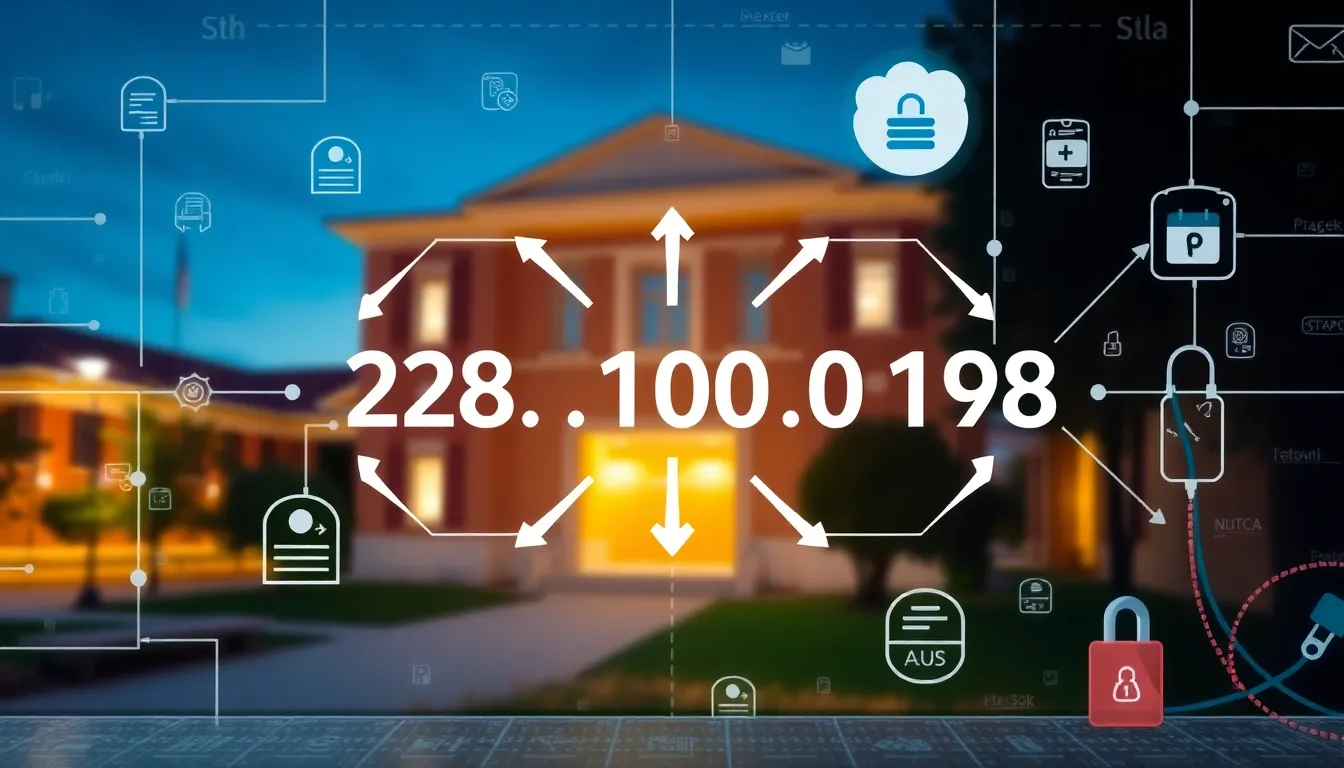In the vast universe of IP addresses, 128.100.0.198 might not be the most glamorous star, but it’s definitely one worth knowing about. Think of it as that quirky friend who always has the best stories to tell, even if they don’t always shine in the spotlight. This particular address plays a crucial role in the digital world, serving as a gateway for data and communication.
Table of Contents
ToggleOverview of IP Address 128.100.0.198
IP address 128.100.0.198 serves as a unique identifier in digital communication. Located within the Class B network range, it enables efficient data packet routing. This specific address belongs to the range assigned for educational institutions in the United States.
Each device connected to the internet utilizes an IP address to facilitate data exchange. The subnet mask for 128.100.0.198 often appears as 255.255.0.0, which allows for a substantial number of hosts. Class B addresses generally support up to 65,534 devices within a single network.
Network administrators frequently utilize this address for internal communication or to connect devices within their local area networks (LANs). It plays a vital role in ensuring seamless digital interactions. Organizations using this address focus on stability and reliability, enhancing user experiences.
Security measures for an IP address like 128.100.0.198 often include firewalls and intrusion detection systems. Proper configuration helps protect against unauthorized access. Additionally, monitoring this address can provide insights into network performance.
Understanding the significance of 128.100.0.198 includes recognizing its role in the broader internet structure. It connects users to resources hosted on various servers. Without such IP addresses, data routing becomes inefficient, complicating communication across networks.
Significance of 128.100.0.198

128.100.0.198 plays a vital role in the digital communication landscape. This unique IP address allows for efficient data transmission across networks.
Role in Networking
Networking professionals utilize 128.100.0.198 for its Class B designation. It can support large networks, accommodating up to 65,534 individual devices. Using a subnet mask of 255.255.0.0 ensures optimal data routing. Additionally, this IP address facilitates direct connections within local area networks. Administrators often configure it to manage internal traffic effectively. Consequently, the address helps maintain smooth connectivity and quick data exchanges.
Common Uses
Education institutions frequently use 128.100.0.198 for their internal operations. This IP address finds applications in various educational settings, such as labs and classrooms. Network configurations commonly include it to streamline communication among faculty and students. Furthermore, it supports remote access to resources, enhancing collaboration. Security measures, including firewalls, protect communications linked to this address. Monitoring activity associated with 128.100.0.198 yields insights into network health and performance.
Technical Specifications
The following details provide a deeper understanding of the IP address 128.100.0.198 and its network characteristics.
Address Type
128.100.0.198 is classified as a public IP address, allowing it to connect to the internet. Public addresses enable devices to transmit data across various networks. This address belongs to the Class B category, which supports large networks. A Class B designation permits efficient allocation of addresses, accommodating up to 65,534 devices on the same network. Educational institutions often utilize this type of address to create internal networks. It fosters communication among numerous users while maintaining a robust structure for data exchange.
Associated Protocols
Numerous protocols support the functionality of 128.100.0.198. Internet Protocol version 4 (IPv4) governs its operations, ensuring data packets are properly routed. Transmission Control Protocol (TCP) complements this by establishing reliable connections between devices. User Datagram Protocol (UDP) provides a faster alternative for applications needing efficient data transmission. These protocols work together to facilitate seamless communication for educational institutions. Network administrators often prioritize these protocols to enhance performance and security. Reliable routing and connection efficiency depend on implementing these essential protocols effectively.
Privacy and Security Considerations
Understanding the privacy and security implications of 128.100.0.198 is crucial for network administrators and users alike. This IP address, while facilitating communication, exposes certain vulnerabilities.
Potential Risks
Unauthorized access represents a significant risk associated with this IP address. Cyber attackers often target educational institutions due to valuable data. Phishing attempts can exploit weaknesses in network security, enabling attackers to gain sensitive information. Additionally, lack of proper monitoring may lead to unrecognized breaches, compromising data integrity. Malware infections can also spread across connected devices, affecting overall network performance. Network interference poses another risk, as disruptions can impact communication and data accessibility.
Best Practices for Safeguarding
Implementing robust security measures protects 128.100.0.198 effectively. Regularly updating firewalls enhances network defense against emerging threats. Utilizing intrusion detection systems helps identify and neutralize suspicious activities promptly. Network segmentation can limit the spread of potential breaches across the system. Employing strong passwords for devices connected to the network is another essential step. Regularly monitoring traffic patterns aids in detecting anomalies, ensuring proactive responses to potential issues. Educating users on safe online practices strengthens overall network security as well.
The significance of 128.100.0.198 extends beyond its technical specifications. This IP address plays a vital role in the communication networks of educational institutions, supporting seamless interactions among users. Its Class B designation allows for extensive connectivity while maintaining efficient data routing.
Security remains a crucial aspect in managing this address. Implementing strong security measures protects against potential threats and ensures the integrity of data. By understanding the importance of 128.100.0.198 and the necessary precautions, organizations can optimize their network performance while safeguarding valuable information. Embracing best practices in security and user education will enhance overall network resilience.



